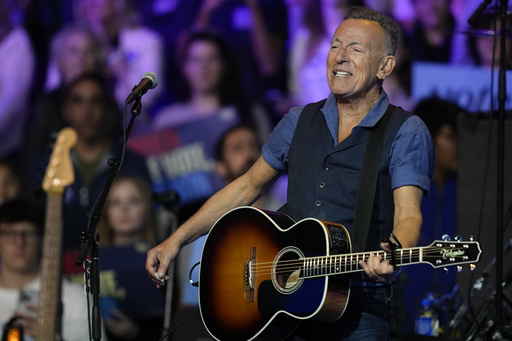
ATLANTA — Vice President Kamala Harris, despite experiencing a significant fundraising achievement of over $1 billion during her campaign against Donald Trump, is still actively engaging supporters for additional contributions following the election.
Democrats have been relentless in their outreach to those who backed Harris, focusing not only on potential financial concerns but also on upcoming challenges posed by Trump’s selections for key administration roles and ongoing congressional races that are still undecided.
Adrian Hemond, a Democratic strategist from Michigan, noted that the Harris campaign exceeded its expenditures compared to its fundraising and is urgently working to generate more funds. He indicated that he was approached to assist with fundraising efforts after the loss to Trump.
The Democratic party is leveraging Harris’ extensive email donor list, sending near-daily solicitations to small-dollar donors — those contributing a few hundred dollars or less. However, the post-election fundraising strategy also includes direct outreach to larger contributors, according to Hemond.
One anonymous source with knowledge of the situation shared that the expected financial shortfall for Harris’ campaign is minor relative to its overall scale, mentioning that the campaign had about $119 million in cash reserves reported by mid-October, prior to the election on November 5.
The current fundraising efforts highlight not only the financial realities of a losing campaign but also the hurdles that Democrats face as they endeavor to uphold a functional political presence against the Trump administration while gearing up for the 2026 midterms. The situation raises questions about the allocation of resources throughout the campaign, which included hosting events with celebrities and promotional activities in unconventional venues like Las Vegas’ domed Sphere.
Patrick Stauffer, the campaign’s chief financial officer, asserted in a statement that there were no unpaid debts or overdue bills on the day of the election. He assured that neither the campaign nor the Democratic National Committee (DNC) would carry any debt into their next financial reporting to the Federal Election Commission, scheduled for December.
The anonymous source familiar with the financial dynamics clarified that the precise status of Harris’ campaign finances remains uncertain, as invoices from vendors for services late in the campaign period are still being received. There are also pending expenses linked to media outlets, specifically for costs associated with media personnel traveling on Air Force Two during Harris’ campaign efforts.
Following Trump’s selection of Florida Republican Matt Gaetz for attorney general, Harris’ supporters received an urgent fundraising prompt emphasizing the need for contributions to the “Harris Fight Fund.” This appeal asserted the necessity to stand against the emerging Trump administration’s objectives.
The communication described Gaetz as a figure who would manipulate the Justice Department for self-preservation and suggested that Democrats must combat former President Trump’s agenda to prevent potential revenge and retaliatory moves.
A subsequent fundraising appeal was issued on Friday under Harris’ name, conveying a message of resilience in the fight for America’s promise, while highlighting critical races across the nation that are still unresolved or pending recounts. These fundraising communications, however, do not reference the campaign’s financial status directly.
The “Harris Fight Fund,” a term used post-election, acts as a rebranding for the “Harris Victory Fund,” which serves as a joint fundraising initiative for Harris’ campaign, the DNC, and various state Democratic organizations. Nevertheless, the messaging primarily directs grassroots donors’ contributions to the national party unless they specify otherwise to have funds allocated directly to Harris’ campaign or to state branches.
The detailed terms clarify that the initial $41,300 donation from an individual and the first $15,000 from a political action committee would benefit the DNC, while subsequent contributions would be allocated to Harris’ campaign’s “Recount Account.” Further donations up to certain limits could potentially be distributed among state parties.
DNC officials, who are preparing for a leadership transition in the upcoming year, signaled that there are no current plans to address any potential funding gaps for Harris, although they did not rule out any possibility of shifting resources towards her campaign’s needs.
